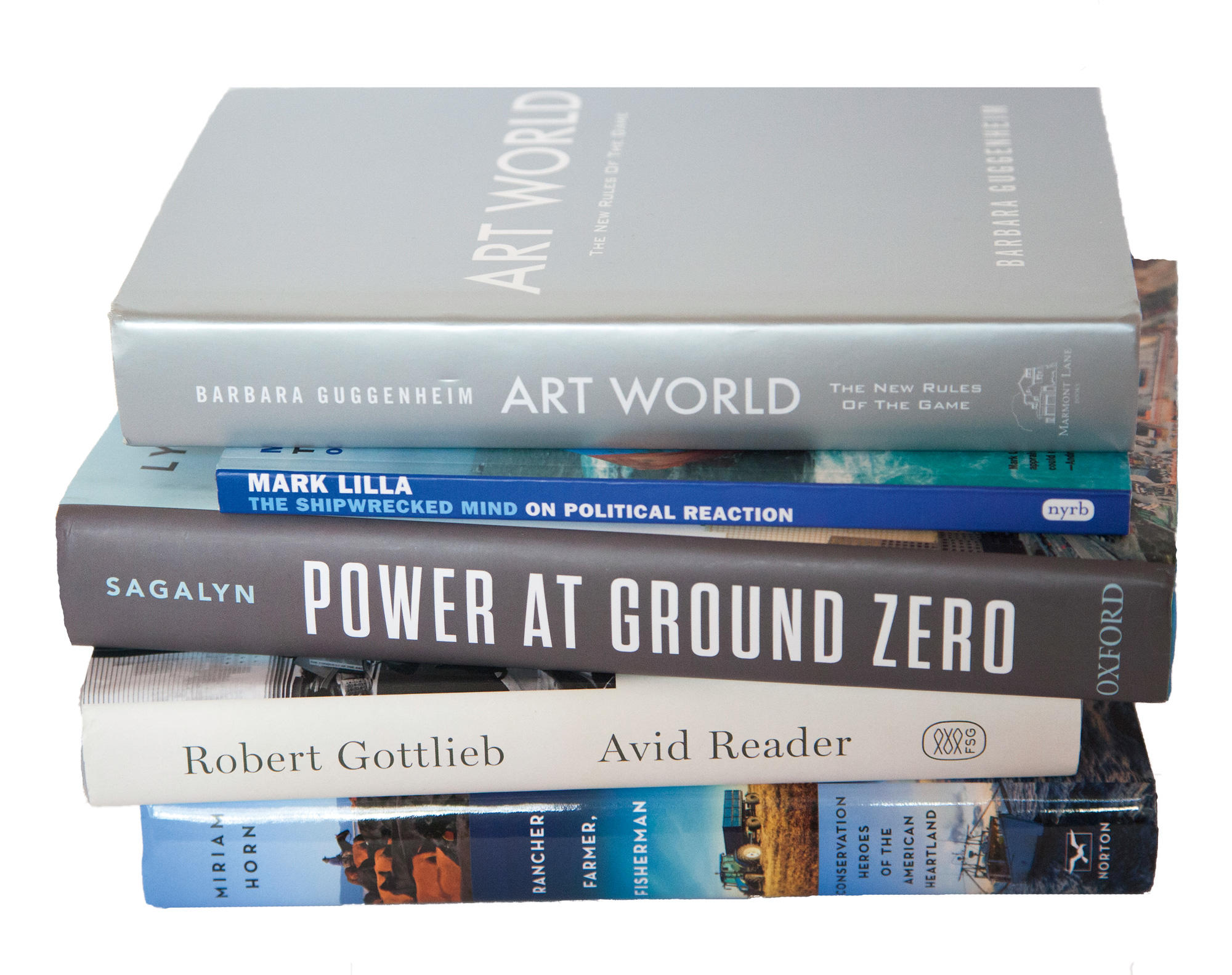AVID READER
by Robert Gottlieb ’52CC
In the world of the New York literati, Robert Gottlieb is royalty. At Simon & Schuster and Alfred A. Knopf, he edited, among others, Joseph Heller, Toni Morrison, and John le Carré, then went on to succeed William Shawn as editor of the New Yorker. His memoir chronicles his sixty-year career, with strikingly frank observations about the figures behind some of the twentieth century’s most enduring works.
POWER AT GROUND ZERO
by Lynne B. Sagalyn
The definitive account of one of the biggest urban reconstruction projects in history. Columbia Business School professor Lynne Sagalyn spent ten years researching the effort to redevelop the sixteen-acre site where the Twin Towers collapsed. Her meticulous reporting reveals a project that was fueled by idealism, rife with complexity, marred by competing factions, and freighted with symbolism.
ART WORLD
by Barbara Guggenheim ’76GSAS
“Making your way through the art world is like picking wild mushrooms,” says Barbara Guggenheim. “It’s not always easy to differentiate what’s okay from what’s deadly.” With a doctorate in art history and decades of experience at Christie’s, Sotheby’s, and the Whitney Museum of American Art, Guggenheim is a consummate guide. Her book on buying and selling art is part instruction manual, part history, and a fascinating look at a complex and remarkably unregulated industry.
RANCHER, FARMER, FISHERMAN
by Miriam Horn ’05GSAS
Some of America’s most important environmental-conservation work is being done not by scientists or political activists but by the ranchers, farmers, and fishermen whose livelihoods depend on the land. Miriam Horn, a best-selling environmental writer, profiles five members of this quiet revolution: a Montana rancher, a Kansas farmer, a Mississippi barge owner, a Louisiana shrimper, and a Gulf fisherman. All have developed innovative solutions to the challenges their communities face, and the resulting portrait is inspiring and enormously hopeful.
THE SHIPWRECKED MIND
by Mark Lilla
Mark Lilla, a Columbia professor of humanities, argues that much about our current political polarization can be explained by a close examination of political reactionaries, those “shipwrecked” in the present but nostalgic for an idealized past. He examines the work of three twentieth-century reactionary political philosophers and discusses how reactionary thought has become a formidable force in twenty-first-century politics on both sides of the Atlantic.



